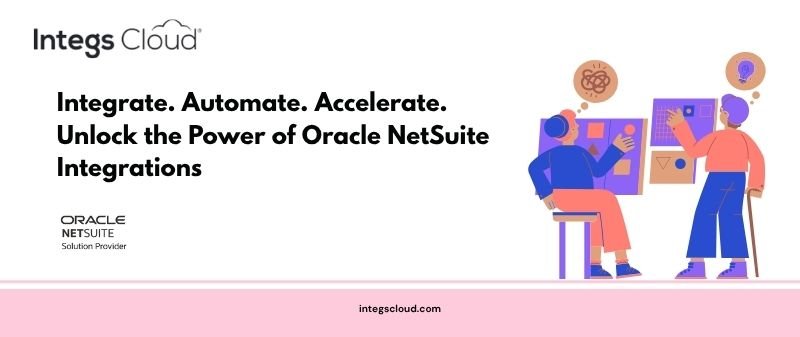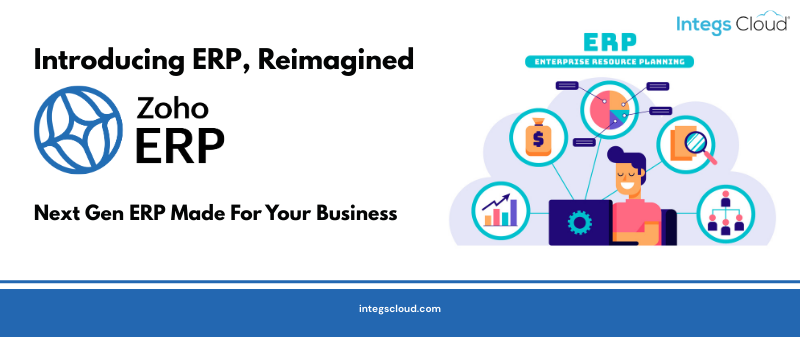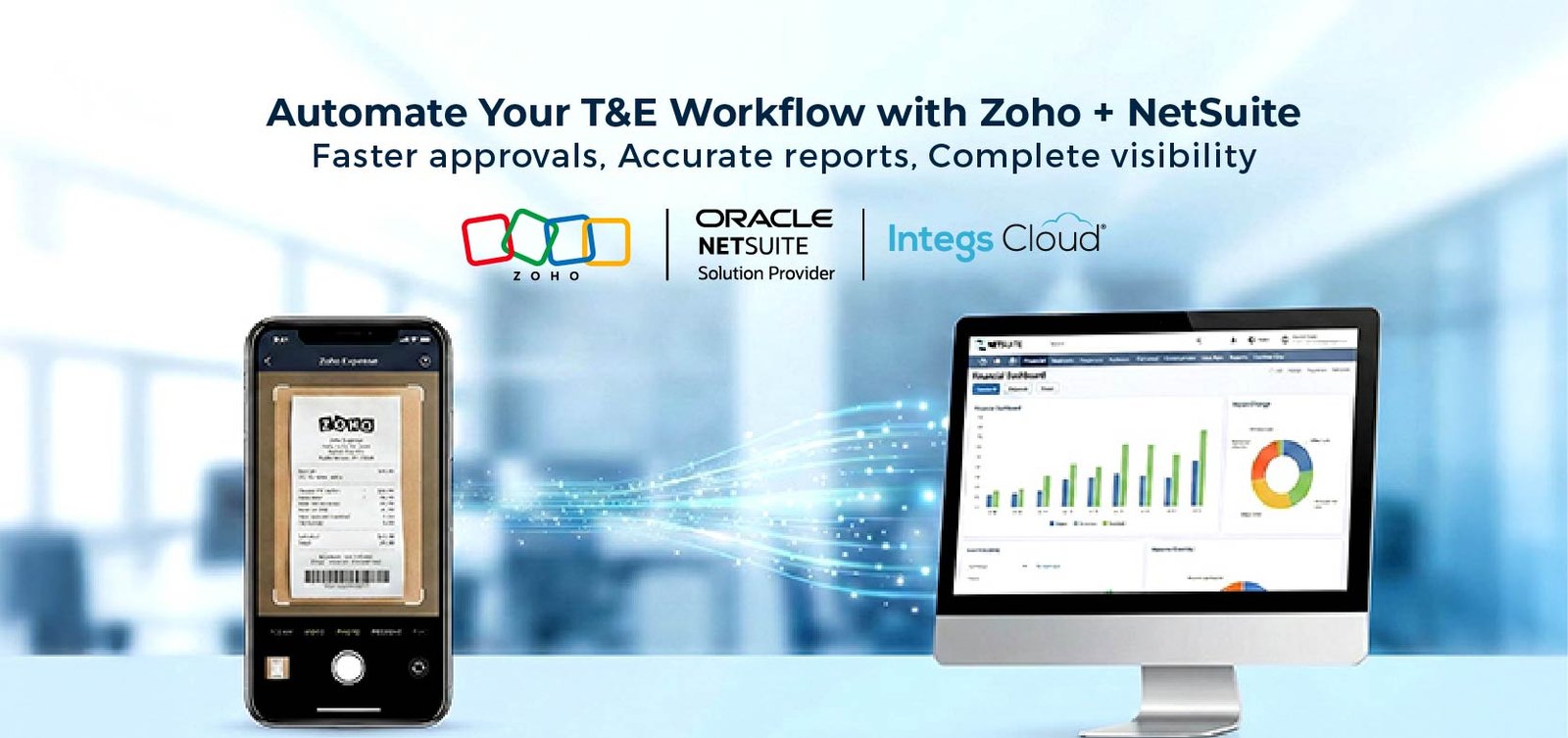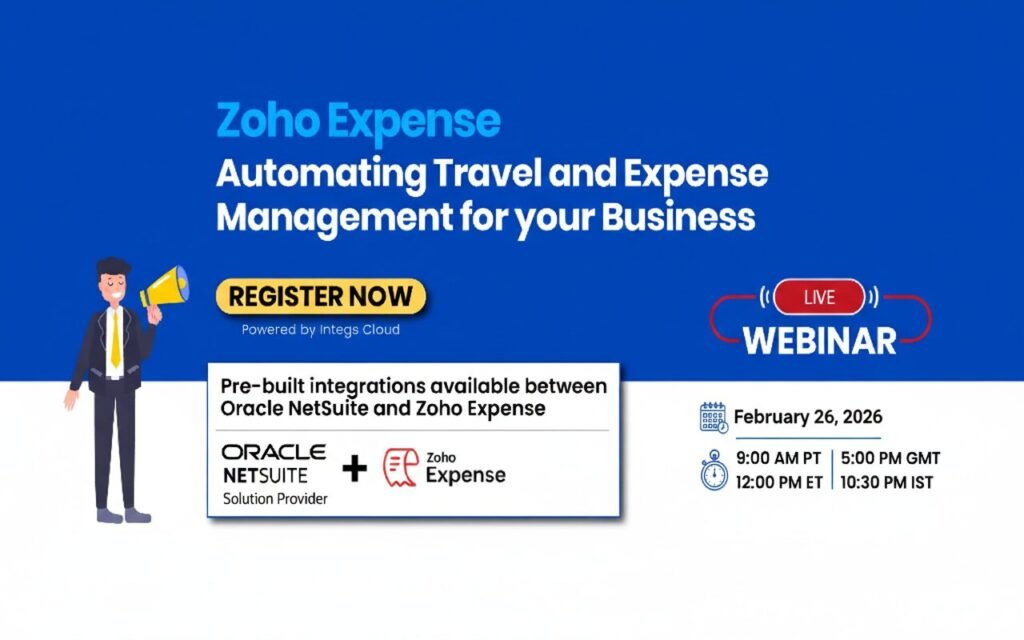Why NetSuite Integrations Matter
Oracle NetSuite is a leading cloud ERP platform that supports financials, operations, supply chain, and customer management in a single system. But no business operates in isolation. Organizations rely on multiple applications such as CRM, eCommerce, payroll, marketing tools, logistics platforms, and more.
When these systems operate in silos, challenges arise:
- Data duplication or inconsistency across platforms.
- Manual processes that slow down decision-making.
- Limited visibility into the customer journey or financial health.
This is where NetSuite integrations become essential. By connecting NetSuite with other applications, businesses ensure seamless data flow, accurate reporting, and a foundation for scalability.
Key Integration Approaches for NetSuite
1. Native Connectors
NetSuite offers built-in connectors for popular applications. These are ideal when you need quick deployment with standard functionality, such as connecting NetSuite to Salesforce or Shopify.
Advantages: Fast setup, vendor-supported, lower upfront effort.
Limitations: May lack flexibility for complex workflows.
2. APIs and SuiteTalk
NetSuite’s SuiteTalk web services (SOAP and REST APIs) allow developers to build custom integrations with external systems. This approach provides maximum control and customization.
Advantages: Highly flexible, tailored to unique business needs.
Limitations: Requires development expertise, longer implementation timelines.
3. iPaaS (Integration Platform as a Service)
Third-party platforms like Celigo, Boomi, or Integrate.io provide pre-built connectors and workflows for NetSuite. iPaaS solutions are designed for businesses seeking scalability, easier maintenance, and centralized monitoring.
Advantages: Faster than building from scratch, supports multiple system integrations, often comes with templates.
Limitations: Subscription costs, potential need for customization.
4. Oracle Integration Cloud
Oracle’s own Integration Cloud enables businesses to connect NetSuite with other Oracle or non-Oracle applications. It offers prebuilt adapters and supports advanced workflows.
Advantages: Strong alignment with Oracle ecosystem, enterprise-ready.
Limitations: More suited for larger organizations with complex requirements.
Common Use Cases for NetSuite Integrations
- eCommerce Integration
Connect NetSuite with platforms like Shopify, Magento, or WooCommerce to sync inventory, orders, and fulfillment. - CRM Integration
Integrate with Salesforce or HubSpot to unify customer data and sales pipelines. - HR and Payroll Systems
Link with tools like Workday or ADP for accurate payroll and employee records. - Logistics and Shipping
Connect with FedEx, UPS, or 3PL systems to automate shipment tracking and order updates. - Business Intelligence
Push NetSuite data into BI tools like Tableau or Power BI for advanced analytics.
These integrations not only reduce manual work but also give decision-makers a unified view of operations.
Choosing the Right Integration Strategy
When planning a NetSuite integration, businesses should consider:
- Business Goals: What problem are you solving? Faster reporting, reduced manual work, or improved customer experience?
- Scalability: Will the integration support growth as transaction volumes increase?
- Maintenance: Who will manage updates, troubleshooting, and monitoring?
- Budget and Resources: Custom APIs may require more investment than pre-built connectors.
How to Configure a NetSuite Integration
- Provision Integration User and Permissions: Set up a dedicated user in NetSuite with required API access rights to securely manage integrations.
- Create Integration Record: In NetSuite, register a new integration to generate authentication credentials such as consumer keys and secrets.
- Generate Access Tokens: Utilize Token-Based Authentication (TBA) for secure, tokenized access without exposing passwords.
- Use Oracle Integration Cloud (OIC) or Other Platforms: For example, with OIC, create connectors by inputting NetSuite credentials, configuring WSDL URLs for SOAP, or using REST endpoints as per integration needs.
- Mapping and Activation: Map external data fields to NetSuite data structures and activate the integration process after thorough testing in a sandbox environment.
Best Practices for Successful NetSuite Integrations
- Security First: Use Token-Based Authentication and adhere to the principle of least privilege for access rights.
- Start Small and Scale: Pilot integrations with core systems before expanding to complex workflows.
- Monitor and Maintain: Regularly check integration logs and error reports to minimize disruptions.
- Keep Documentation Updated: Maintain clear records of integration configurations, API versions, and customizations for troubleshooting and upgrades.
- Leverage Support Resources: Use Oracle’s developer documentation, community forums, and integration platform support for guidance.
Example in Practice
A mid-sized retail company using NetSuite for finance and inventory needed to streamline order fulfillment from its Shopify store. Instead of manually importing orders, they deployed an iPaaS connector. Orders, payments, and inventory updates now flow automatically between systems, reducing errors and improving delivery timelines.
This type of integration demonstrates how businesses can align technology with operational efficiency.
The Role of Expert Integration Partners
While NetSuite provides powerful integration tools, successful execution often requires guidance. Choosing an experienced partner ensures integrations are configured correctly, optimized for long-term performance, and aligned with business goals.
Firms like Integs Cloud specialize in end-to-end NetSuite services, from implementation to integration. By combining technical know-how with domain expertise, they help businesses achieve seamless connectivity across systems.
Conclusion
Oracle NetSuite integrations are no longer optional. They form the foundation for modern business agility. Whether through native connectors, APIs, iPaaS platforms, or Oracle Integration Cloud, the right approach depends on business needs, scale, and resources.
For organizations seeking to maximize NetSuite’s value, thoughtful integration planning and the right implementation partner can make all the difference.
Learn more about optimizing NetSuite integrations. Explore Integs Cloud.




